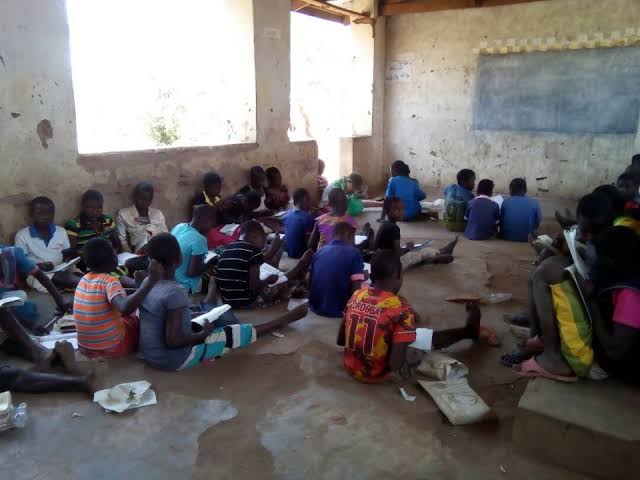Difficulty to access Education in Nigeria
Access to education is a fundamental human right and a critical component of social and economic development. However, in Nigeria, particularly in rural areas, access to quality education remains a significant challenge. Despite numerous initiatives and policies aimed at improving educational access, many children in rural Nigeria still face considerable barriers. These challenges are multifaceted and include infrastructural deficits, socio-economic issues, cultural factors, and policy implementation problems. Understanding and addressing these challenges is essential for fostering equitable education and driving sustainable development in Nigeria.
Infrastructural Deficits
One of the most prominent challenges to accessing education in rural Nigeria is the lack of adequate infrastructure. Many rural schools are dilapidated, lacking basic facilities such as classrooms, desks, and chairs. In some cases, students are forced to learn under trees or in makeshift shelters, which are not conducive to effective learning. Furthermore, the absence of proper sanitation facilities, libraries, and laboratories significantly hampers the quality of education. Without a supportive learning environment, students are less likely to attend school regularly and perform well academically.
Insufficient Educational Resources
In addition to inadequate infrastructure, rural schools often suffer from a lack of educational resources. Textbooks, teaching materials, and other essential supplies are frequently in short supply. This scarcity is exacerbated by the limited availability of qualified teachers. Many educators are reluctant to work in rural areas due to poor working conditions, low salaries, and lack of professional development opportunities. Consequently, rural students often receive instruction from underqualified or inexperienced teachers, which negatively impacts their educational outcomes.
Socio-Economic Barriers
Socio-economic barriers also play a significant role in limiting access to education in rural Nigeria. Many families in rural areas live in poverty and cannot afford the direct and indirect costs of education, such as school fees, uniforms, and transportation. As a result, children from low-income households are more likely to drop out of school or never enroll in the first place. Additionally, many children are required to work to support their families, further reducing their ability to attend school regularly. This economic burden is a critical factor in the persistent educational disparities between urban and rural areas.
Cultural and Gender-Based Challenges
Cultural factors and gender-based challenges further complicate access to education in rural Nigeria. In some communities, traditional beliefs and practices prioritize early marriage and domestic responsibilities over formal education for girls. This cultural bias leads to higher dropout rates among girls and limits their educational attainment. Additionally, there is often a preference for boys' education over girls', based on the perception that boys are more likely to contribute to the family's income in the future. Overcoming these cultural barriers requires targeted interventions that promote the value of education for all children, regardless of gender.
Security Concerns
Security concerns also pose a significant barrier to education in certain rural areas of Nigeria. Regions affected by conflict, insurgency, or banditry experience disruptions in educational activities, leading to prolonged school closures and displacement of students and teachers. The fear of violence and insecurity discourages parents from sending their children to school, particularly in areas where schools have been directly targeted by armed groups. Ensuring the safety of students and educators is crucial for improving educational access in these conflict-prone regions.
Policy Implementation and Governance Issues
While there have been various policies and initiatives aimed at improving access to education in Nigeria, the effectiveness of these measures is often hindered by implementation challenges and governance issues. Corruption, mismanagement of funds, and lack of accountability at various levels of government undermine the successful execution of educational programs. Moreover, there is often a disconnect between policy formulation and practical realities on the ground, leading to gaps in service delivery. Strengthening governance structures and ensuring transparency and accountability in the implementation of educational policies are essential for overcoming these challenges.
Transportation and Accessibility
Transportation and accessibility issues further exacerbate the difficulties in accessing education in rural Nigeria. Many rural communities are located in remote and hard-to-reach areas, with poor road networks and limited public transportation options. This geographical isolation makes it challenging for students to travel to and from school, particularly during the rainy season when roads can become impassable. The long distances that some children must travel to reach school can be a significant deterrent, leading to high absenteeism and dropout rates.
Health and Nutrition
Health and nutrition also play a critical role in educational access and outcomes. Many children in rural Nigeria suffer from malnutrition and health issues that affect their ability to learn and attend school regularly. Lack of access to healthcare services and poor living conditions contribute to the high prevalence of diseases and health problems. Additionally, inadequate nutrition can impair cognitive development and academic performance. Addressing health and nutrition challenges is essential for ensuring that children are physically and mentally prepared to benefit from educational opportunities.
Community Engagement and Support
Community engagement and support are crucial for improving access to education in rural Nigeria. In many rural areas, there is a need for greater awareness and advocacy regarding the importance of education. Engaging community leaders, parents, and other stakeholders in educational initiatives can help build local support and create a more conducive environment for learning. Community-based programs that provide support and resources for families can also help alleviate some of the socio-economic barriers to education.
